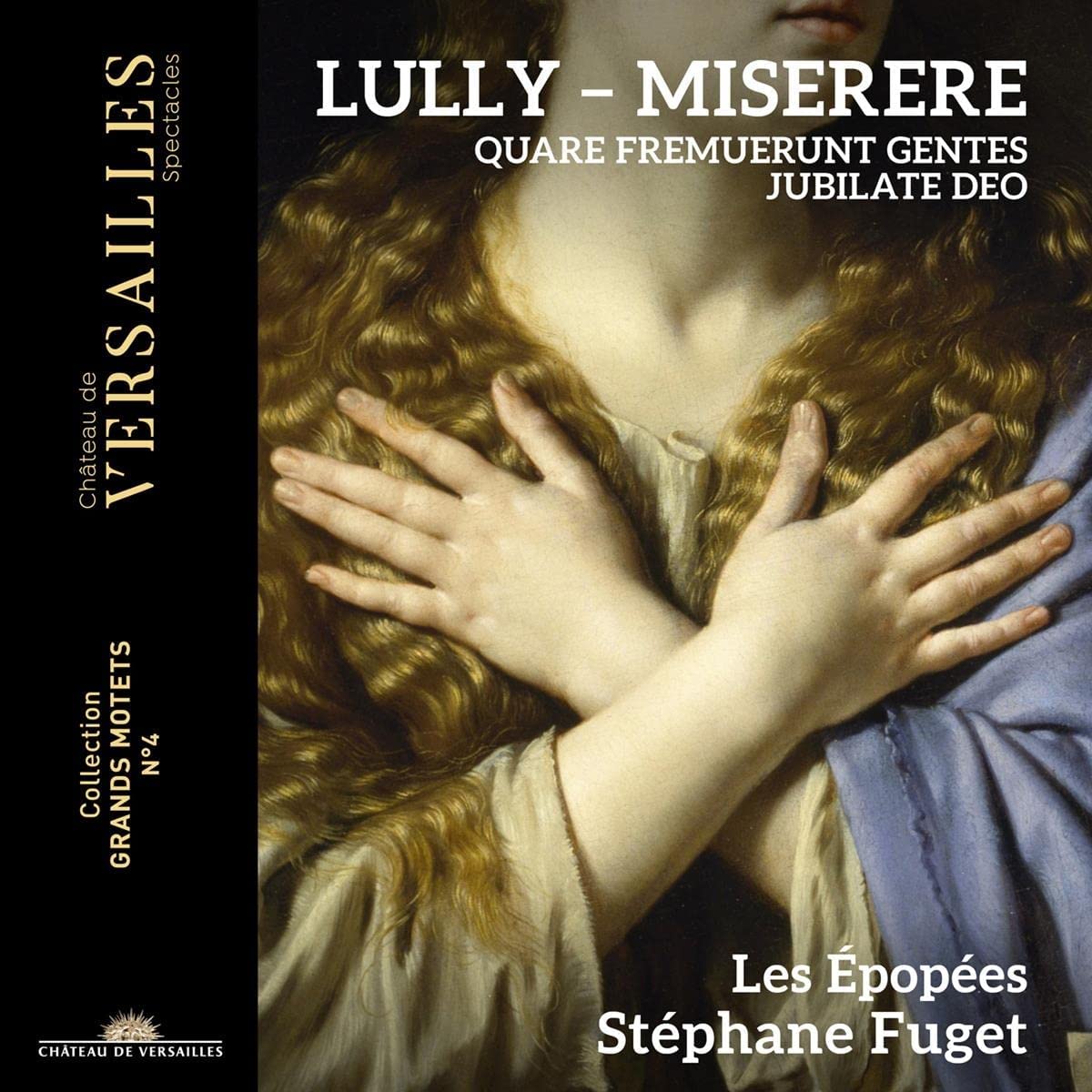Les Épopées, Stéphane Fuget
66:14
Château de Versailles Spectacles CVS059
Click HERE to buy this release on amazon.co.uk
[These links help keep the site FREE]
This release is part of two ongoing series from Versailles: No. 4 of Collection Grands Motets and Vol. 2 of a Lully series. The performing forces are large and I admit that I couldn’t resist counting the string players! There are indeed 24 of them, though not, perhaps, disposed exactly as Lully might have done. However, this was not as cast in stone as we are sometimes led to believe. The strings combine with a similarly sized choir and various winds and continuo to present the recording engineers with something of a dilemma. Several recordings from this chapel have been quite close, with little sense of the venue. Here, we have something closer to what a listener in the building might hear: quite a lot of resonance, though some loss of detail in the rich textures. However, I did appreciate hearing the soloists more as part of the overall sound, with less highlighting than is often used. On the performance practice front, I found myself wondering about the presence of a harpsichord in these pieces.
Texts (usually from the psalms) were chosen for motets with some care and with an eye to their potential for dramatic settings. Here we have Psalms 50 (Have mercy on me, O God), 2 (Why do the heathen rage) and a Jubilate Deo (of which the text source, a compilation from several psalms, is not given – one of several editorial shortcomings in the booklet). If you are new to Lully’s sacred music, these three works are a good way in: they are truly splendid. And the performances are also very good, with thoughtful integration of the soloists with the choir and good continuity between sections. The v-word is less of an issue, too: such a relief.
The booklet (in French, English and German) is quite reasonable in content, though not comprehensive in its detail, and I continue to question the grouping of essays by topic. Wouldn’t it be more reader-friendly to put them together by language?
David Hansell
